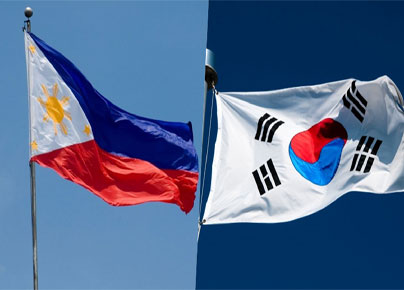Korea-Philippines FTA to Eliminate Tariffs
2025-01-03

With the Korea-Philippines FTA taking effect on December 31, banana tariffs will drop 6 per cent every year from the current 30 per cent, disappearing entirely in five years. Southeast Asian countries are the primary source of Korea's bananas. The Philippines is expected to save $189 million on banana exports over five years as the Philippines-South Korea free trade agreement (FTA) comes into force, according to the Department of Trade and Industry (DTI). Export Marketing Bureau Director Bianca Pearl R. Sykimte stated that the FTA will immediately reduce tariffs for Philippine banana exports by six percentage points this year. "And that will be twelve percentage points by January 1, 2025. Because when we implement FTAs, year 1 will always be the date of entry into force, and year 2 will always be January 1," she told reporters in an online briefing last week. "If we base it on Korea's $ 210 million imports of bananas from us, we have $12.6 million in tariff savings per year because of the tariff reduction. By year 2, we will have over $25 million in tariff savings," she added.
Trade Undersecretary Ceferino S. Rodolfo mentioned that the FTA would reduce the Philippines' tariff disadvantage against South Korea's other FTA partners. "For example, Vietnam. By next year, Vietnam will have 0% duty on its bananas shipped to Korea. For us, that is 30% without the FTA," Mr. Rodolfo said.
2012 the Philippines accounted for 98.2% of South Korea's banana imports. However, this fell to 69.1% last year after other countries secured lower tariffs through FTAs. The DTI reported that Costa Rica, Honduras, Peru, and Vietnam enjoy zero duty on their banana exports to South Korea. At the same time, Australia and Panama are charged 6% and 8% tariffs on their banana exports. Under the pre-FTA regime, bananas from the Philippines and Cambodia are subject to a 30% tariff.
"Since it became zero-duty for some of our competitors, like Vietnam, Costa Rica, and Peru, they were able to gain significant market share in the Korean market. So, we lost about 29% of the market," Ms. Sykimte said.
Asked if the tariff savings will affect the prices of goods from Korea, Ms Sykimte said: "It would depend on the business model involved if they pass the savings on to the supply chain to charge the consumer less," she said. "In the first place, the tariff for all of the products where the Philippines gave concessions is already low, as they are also covered under the ASEAN-Korea FTA and the Regional Comprehensive Economic Partnership," he said. Most of them have a 5% duty. So, if they get lower tariffs, it will only have a minimal impact. If there will be tariff savings, I think they will pass it on to the consumers," he added.









